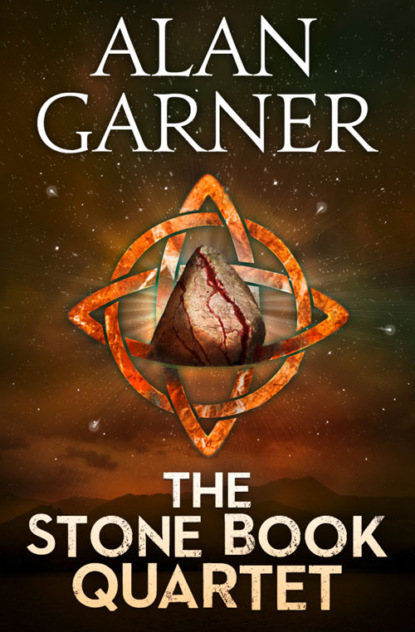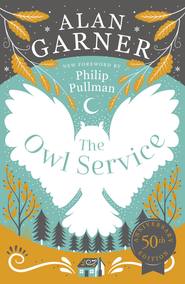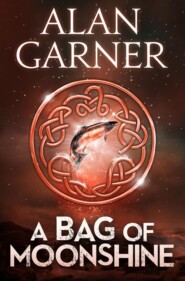По всем вопросам обращайтесь на: info@litportal.ru
(©) 2003-2025.
✖
The Stone Book Quartet
Настройки чтения
Размер шрифта
Высота строк
Поля
‘We’ve been going a while,’ said Father.
‘And that bull,’ said Mary.
‘That’s a poser. There’s been none like it in my time; and my father, he hadn’t seen any.’
‘What is it all?’ said Mary.
‘The hill. We pass it on: and once you’ve seen it, you’re changed for the rest of your days.’
‘Who else of us?’ said Mary.
‘Nobody,’ said Father, ‘except me: and now you: it’s always been for the eldest: and from what I heard my father say, it was only ever for lads. But if they keep on stoping after that malachite the way they’re going at the Engine Vein, it’ll be shovelled up in a year or two without anybody noticing even. At one time of day, before the Engine Vein and that chap who could read books, we must have been able to come at it from the top. But that’s all gone. And if the old bull goes, you’ll have to tell your lad, even if you can’t show him.’
‘I shall,’ said Mary.
‘I recollect it puts a quietness on you, does that bull. And the hand. And the mark.’
Mary went to wash the Tough Tom from her boots in the spring when they reached home. The spring came out of the hill and soaked into Lifeless Moss, and Lifeless Moss spilled by brooks to the sea.
Father sat with Mother for a while. Old William had picked up his usual rhythm, and the loom rattled, ‘Nickety-nackety, Monday-come-Saturday’. Then Father collected his work tools and sat down at the table and sorted through the pebbles.
He weighed them in his hand, tested them on his thumbnail, until he found the one he wanted. He pushed the others aside, and he took the one pebble and worked quickly with candle and firelight, turning, tapping, knapping, shaping, twisting, rubbing and making, quickly, as though the stone would set hard if he stopped. He had to take the picture from his eye to his hand before it left him.
‘There,’ said Father. ‘She’ll do.’
He gave Mary a prayer book bound in blue-black calf skin, tooled, stitched and decorated. It was only by the weight that she could tell it was stone and not leather.
‘It’s better than a book you can open,’ said Father. ‘A book has only one story. And tomorrow I’ll cut you a brass cross and let it in the front with some dabs of lead, and then I’ll guarantee you’d think it was Lord Stanley’s, if it’s held right.’
‘It’s grand,’ said Mary.
‘And I’ll guarantee Lizzie Allman and Annie Leah haven’t got them flowers pressed in their books.’
Mary turned the stone over. Father had split it so that the back showed two fronds of a plant, silk in skeins, silk on the water under the hill.
And Father went out of the room and left Mary by the fire. He went to Old William and took his ophicleide, as he always did after shouting, and he played the hymn that Old William liked best because it was close to the beat of his loom. William sang for the rhythm, ‘Nickety-nackety, Monday-come-Saturday’, and Father tried to match him on the ophicleide.
William bawled:
‘“Oh, the years of Man are the looms of God
“Let down from the place of the sun;
“Wherein we are weaving always,
“Till the mystic work is done!”’
And so they ended until the next time. The last cry went up from the summer fields, ‘Who-whoop! Wo-whoop! W-o-o-o-o!’
And Mary sat by the fire and read the stone book that had in it all the stories of the world and the flowers of the flood.
GRANNY REARDUN (#ulink_70b21369-f61d-5282-a67a-705a11154750)
They were flitting the Allmans. Joseph sat at the top of Leah’s Bank and watched.
The horse and cart stood outside the house, by the field gate. Elijah Allman lifted the dollytub onto the cart first and set it in the middle. Then Alice and Amelia climbed into the dollytub, and Elijah packed them round with bedding. Young Herbert was carrying chairs.
The Allmans loaded the cart with furniture, stacking from the girls in the dollytub, so that the load was firm. Mrs Allman came out of the house backwards on her knees. She was donkey-stoning the doorstep white, and when she had done she stood up, and reached over the step and pulled the door to.
Elijah helped her up onto the carter’s seat. Young Herbert sat next to her, holding the reins. Elijah took the bridle and walked the horse through the field gateway, down the Hough and onto the Moss.
Joseph listened to them go. He went to the top corner post of the field, ran three strides and slid down Leah’s Bank. It was such a steep hill, and the grass so hard and slippery, that he could slide for yards at a time, standing. And when the grass was brogged by old cow muck, he had only to keep his balance, skip, and be away again.
He pushed the door open.
The house smelt wet with donkey-stone and limewash. The rooms were enormous empty. All the floors were white, all the walls and beams and the ceilings white. The stairs were sand-scoured, and the boards too. There was no dirt anywhere.
Joseph looked out of the bedroom window. The Allmans were away across the Moss. He left the house and went home for breakfast. He lived at the bottom of the hill.
Grandfather had finished his breakfast and was smoking a pipe of tobacco in his chair by the fire. His hard fingers could press the tobacco down hot in the bowl, without burning himself.
‘They’ve flitted Allmans,’ said Joseph.
‘Ay,’ said Grandfather.
‘What for?’ said Joseph.
‘The years they’ve been there,’ said Grandfather. ‘It’s a wonderful thing, them in their grandeur, and us in raddle and daub.’
‘Why?’ said Joseph.
‘Eat your pobs,’ said Grandmother.
Grandfather knocked the ashes of his pipe out onto his hand and pitched them in the fire. He raised himself. ‘Best be doing,’ he said. ‘Damper Latham’s getting for me. And think on,’ he said to Joseph, ‘I’ll have half an hour from you before school. Is your mother coming up for her dinner today?’
‘And fetching Charlie,’ said Joseph. ‘She promised.’
Grandfather picked up his canvas bass and took his cap off the doornail. The chisels and hammers clinked together in the bass. ‘Be sharp,’ he said to Joseph.
Grandfather was old. But he still turned out. He was building a wall into the hedge bank of Long Croft field, down the road from the house, under the wood.
Joseph washed his basin and spoon at the spring in the garden, and ran down the road to Long Croft.
Grandfather was rough-dressing the stone for the wall, and laying it out along the hedge. Joseph unwound the line and pegged one end in the joints where Grandfather had finished the day before, and pulled the line tight against the bank. His job was to cut the bank back to receive the stone and to run a straight bed for the bottom course.
He chopped at the bank.
‘Sweep up behind you,’ said Grandfather. ‘Muck’s no use on the road. It wants to be on the field.’











